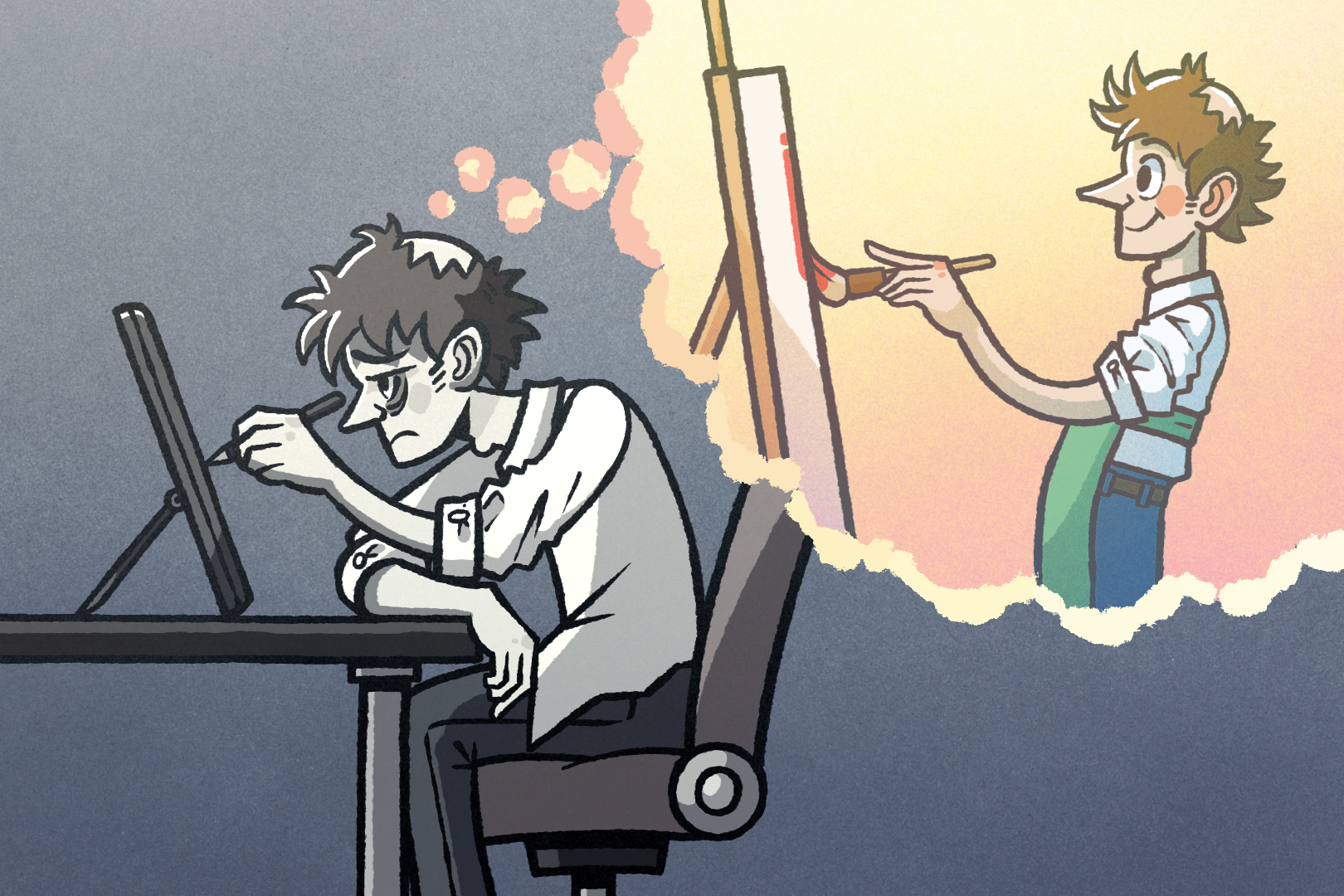Should structure eclipse creativity?
I cannot be the only one who debates between having a traditional nine-to-five or rebelling against societal pressure and opting to freelance and work for myself. Before transferring to Concordia, I was at school in Toronto for the sole reason of opportunity: Toronto is where the Canadian divisions of the Big Five publishing companies are, and I saw it as “the land of opportunity” to get a start on my career. Clearly, I got disillusioned.
My end goal is ultimately the same, but seeing how bleak people look as they’re leaving those grey office buildings makes the “Do I really want to do that?” debate rear its ugly head.
As someone who is more right-brained, the topic of how people can still maintain their creative side around a traditional nine-to-five job is of interest to me. Is a traditional, structured nine-to-five viable for a happy, creative and well-rounded lifestyle?
Given the cycle of the same place, commute and people, the exhaustion that comes with repetition demotivates us to unleash our creative side. Routine monotony is something that characterizes the nine-to-five: tasks become repetitively predictable, which leads to a torpor of ideas and a decrease in creative thinking. In a typical nine-to-five in-person office setting, there is rarely any room to experiment with creative solutions.This lack of flexibility hinders the nurturing of our own unique creative potential during moments of inspiration. Without our creativity, we become a shell of ourselves.
Work is a key component of our personal identity—it makes up the good majority of our time and is where we see our professional growth as well as our paychecks. With finances being most people’s Waterloo, it gets difficult to make your passion your profession, but it is our passions that make us who we are. Otherwise, we would all be slightly altered versions of the same person.
Because of this push to earn to survive, our passions and the component of our identities they create often get disregarded and viewed as “less important” because they don’t contribute to our job. Nonetheless, it’s essential to explore avenues unrelated to work in order to be a well-rounded person. Think about it—someone that can only talk about their job and whose personality is solely their profession is far less interesting to interact with than someone who has passions they can be excited about. Your personal identity needs to be cultivated through your passions.
Of course, a nine-to-five does not always offer time to pursue your creative passions—jobs in and of themselves are demanding, and by the time the work day is done, you might not have the energy to tune into your creativity. So much of the day turns to be in the interest of the company you work for, and not for yourself, which is unfulfilling to say the least. Creativity becomes lost when there is no space for it.
I’m not speaking out of assumption as I’m writing this. While everything stated so far applies to an in-person job, it does not necessarily apply to a hybrid or remote position, and I was lucky enough to work a remote nine-to-five position last year. While I had a schedule to keep, the remote option gave me the chance to both work on personal projects when I wanted a break from work and to be a bit more creative with company projects because I had cultivated a motivating environment.
I am of the mind that either a remote or a hybrid role is opportune for creativity, mostly because of the lack of repetition I touched on earlier. You have the option to create your own working environment, you can step away from your work, and it also gives a certain flexibility that a rigidly scheduled in-person nine-to-five may lack, and a job that offers a hybrid or partially remote option is something that I have looked into. Alternatively, I might do a one-eighty and work for myself—in an age of technology, there are enough resources and opportunities out there to apply creativity and passion and make a career out of it.
Our whole lives, we’re told to create our own identity, but it is tough to do so when we’re expected to ditch our cultivated and unique selves in favour of a job that might not even bring us personal satisfaction. Constantly keeping busy does not mean productivity ensues. You could complete meaningless tasks but never actually accomplish anything.
The responsibility, networking, and steady paycheck of a nine-to-five are great, but if it doesn’t allow you to develop your own creativity and see a cultivated and personally accomplished version of yourself, then is it worth doing something you aren’t really passionate about? Why work for someone else’s dream when you can work for your own?
